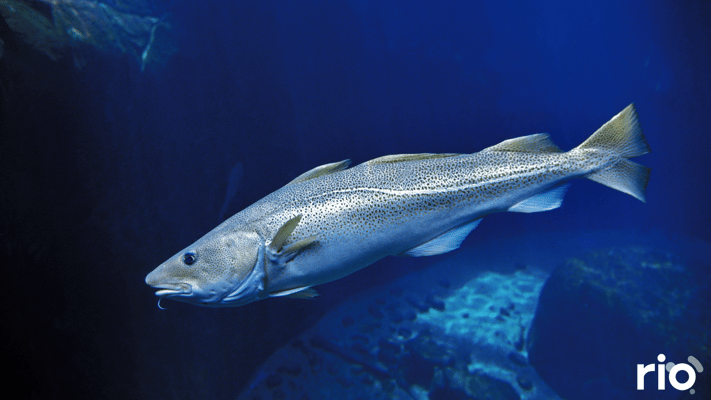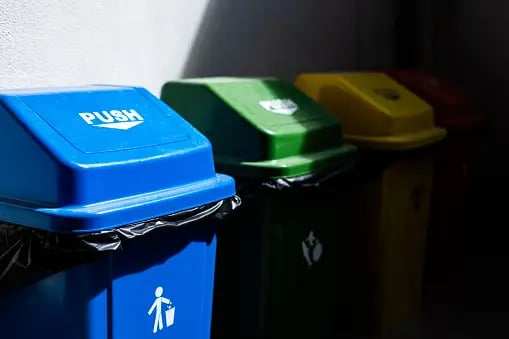Our Manifesto
At Rio, we stand by our manifesto and that means practising what we preach. To do this, last year we set science-based targets to achieve Net Zero within our organisation. So, a year on, we’re looking at the targets we set, what practices or policies we put in place to achieve them and where we are now.
As a result of the Covid-19 pandemic we, like most other companies, saw a dramatic shift to working from home. This meant a change in the operational running of the business which included a significant reduction in commuting and business travel, as well staff members being based in their own homes rather than our office. As a result of these changes, we saw a considerable difference in our carbon footprint for FY20/21 compared to our baseline from FY19/20.
Our Annual Footprint
Similar to last year, we collected data across our various sources and utilised Rio's technology to calculate our annual carbon footprint. A full breakdown of our emissions for this year in comparison to last year is detailed below.
| |
FY2019/20
(Net tCO2e)
|
FY2020/21
(Net tCO2e)
|
Change |
| Scope 1 |
2.5 |
9.9 |
↑296% |
| Scope 2 |
6.8 |
0.01 |
↓99% |
| Scope 3 |
12.3 |
1.5 |
↓88% |
| Total |
21.6 |
11.9 |
↓44% |
Net tC02e carbon emissions by scope year on year
*Net figures take into account the use of renewable energy
The most prominent change was the increase in Scope 1 emissions - this was a result of the increase in gas consumption being used to heat staff members’ homes. This is an area we are continuing to explore to understand how we can best support our staff members to purchase more sustainable energy sources, as possible.
Scope 2 saw a significant decrease in net carbon emissions as all employee’s homes, as well as our offices, are on renewable energy tariffs. Lastly, for Scope 3, we also saw a significant reduction due to no business travel or commuting taking place throughout the year as a result of the COVID-19 pandemic. However, we anticipate that in the coming years there will be an increase in travel therefore it will be important for us to ensure this is managed appropriately for us to be able to meet our interim and long-term targets.
We recognise that whilst we have reduced our overall emissions, we need to continue to focus our efforts on reducing emissions across all scopes.
Progress against targets
The restrictions that came into place following the pandemic had a huge impact on the business and a knock-on effect on our carbon emissions. That’s why we’ve set out in our target recalculation policy to reassess at the end of FY21/22 when its anticipated business activities will be more reflective of the years to follow. Importantly, this means that our targets can be more impactful. Nonetheless, our progress against the science-based targets we have set are as follows:
To reduce Scope 1 and 2 emissions by at least 42% by FY2030/31 from an FY 2019/20 base year.
- During FY2020/21 we saw an increase of 13% in our Scope 1 and 2 emissions primarily due to emissions from working from home being included as some staff members use fuel and/or gas to heat their homes.
To reduce Scope 3 emissions by at least 30% by FY2030/31 from an FY2019/20 base year.
- During FY2020/21 we saw an 88% reduction in Scope 3 emissions as a result of no business travel or commuting taking place in addition to all electricity purchased being renewable energy.
We’ve also been working hard on our other initiatives, for example, we have successfully offset all GHG emissions for FY19/20, ensured our main office is supplied with 100% renewable electricity and implemented a cycle to work scheme. We are also working closely with the building management team as well as our development team to capture other data sources to further the completeness of our footprint.
As the next financial year soon closes, we will also be looking to calculate our latest carbon footprint and measure progress against targets. Our sustainability journey continues, and we look forward to keeping you updated on our progress.
If you have any questions about our process or need guidance with determining your organisation's own carbon footprint and setting science-based targets, get in touch.

.png?width=2800&height=1400&name=Blog_%20Featured%20Images%20(17).png)








